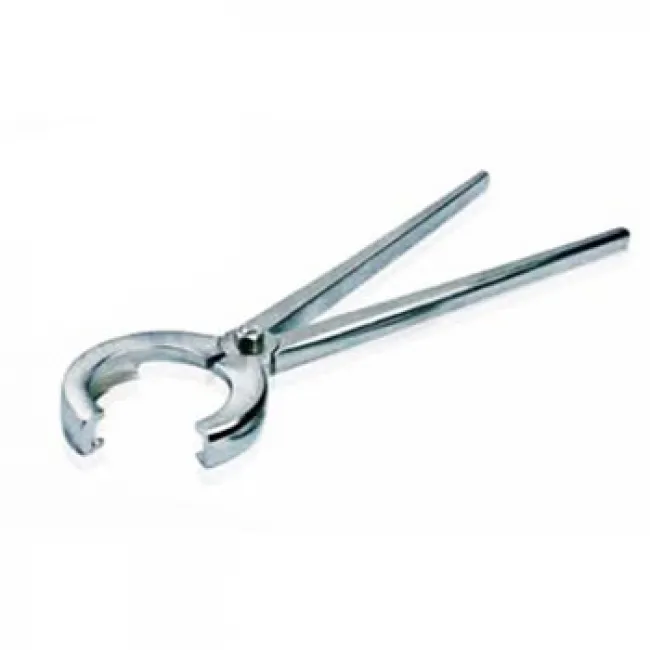Bull Holder
A bull holder is a vital livestock management tool designed for safely restraining bulls and large cattle. It applies gentle, controlled pressure on the animal’s nose or head to prevent sudden movements, ensuring safety during veterinary procedures, grooming, breeding, and transportation.
Description
A bull holder is an essential tool for livestock management, specifically designed to ensure safe and controlled restraint when handling bulls or other large cattle. This device helps prevent sudden movements or aggression, ensuring the safety of both the animal and its handler during various tasks such as veterinary care, grooming, breeding, and transportation.
Key Features and Benefits:
Durable Construction:
Bull holders are typically made from high-strength, rust-resistant materials like stainless steel or heavy-duty cast iron. These materials ensure longevity and reliability, even under harsh farm conditions. Their robust design is vital for managing powerful bulls, guaranteeing durability with frequent use.
Effective Control and Safety:
The bull holder attaches securely to the animal’s nose ring or septum, providing a firm yet gentle grip. This allows for effective control, especially during high-risk activities like veterinary procedures (e.g., injections, blood tests), grooming, hoof care, or transportation. It helps minimize aggressive behavior and reduces the risk of injury for both the bull and the handler.
Versatility Across Various Farm Operations:
- Veterinary Procedures: Keeps the bull calm and steady during medical treatments such as vaccinations or check-ups.
- Breeding Control: Helps maintain control during breeding activities, minimizing aggressive behavior and ensuring safety.
- Grooming and Hoof Care: Ensures that the bull remains still during grooming, hoof trimming, or bathing, making the process safer for both the animal and the handler.
- Transportation: Facilitates safe loading and unloading of bulls, reducing stress during transit and preventing accidents.
Promotes Animal Welfare:
Bull holders are designed to provide humane restraint. They apply controlled pressure without causing discomfort or pain, ensuring minimal stress for the bull. This humane handling method is especially crucial for reducing anxiety during sensitive procedures such as transport or medical treatment.
User-Friendly Design:
Many models of bull holders are equipped with ergonomic handles for a comfortable grip, allowing handlers to maintain control with ease. They are easy to attach and remove, saving time and improving operational efficiency during farm activities.
Adjustability and Size Options:
Bull holders come in various sizes to accommodate different cattle breeds. Some models are designed for use with a bull’s nose ring, while others feature adjustable clamps for direct attachment to the septum. This adjustability ensures optimal comfort for the animal while maintaining effective control.
How to Use a Bull Holder Safely:
- Secure Attachment: Ensure the bull holder is firmly attached to the bull’s nose ring or septum. Avoid over-tightening to prevent discomfort.
- Approach Calmly: Always approach the bull confidently to avoid startling it.
- Apply Steady Pressure: Maintain a steady, gentle grip to guide the bull without sudden movements.
Conclusion:
A bull holder is an indispensable tool for livestock management, helping ensure both the safety of the animal and the handler. Whether used during routine veterinary care, grooming, breeding, or transportation, it plays a critical role in managing large cattle effectively. By investing in a high-quality bull holder, farmers can improve safety, reduce stress, and enhance operational efficiency on the farm.


